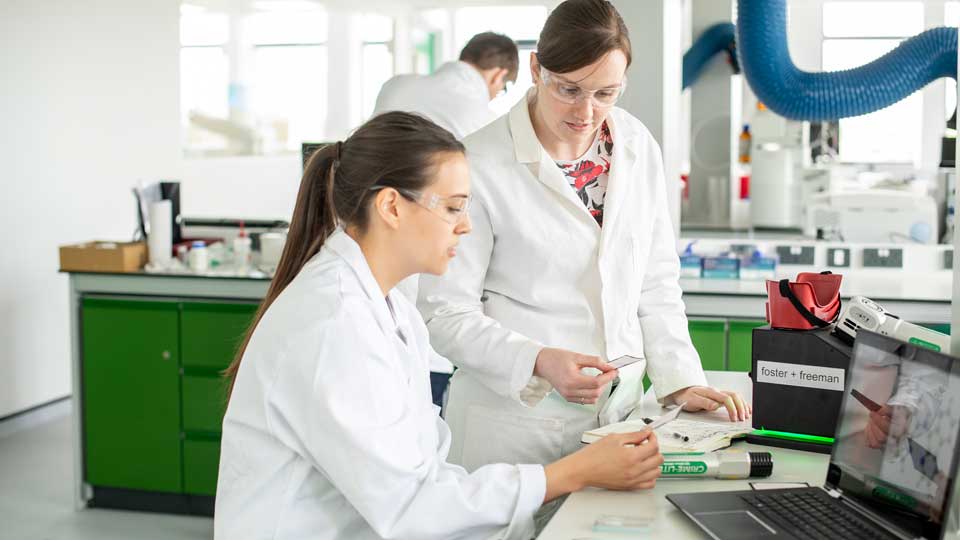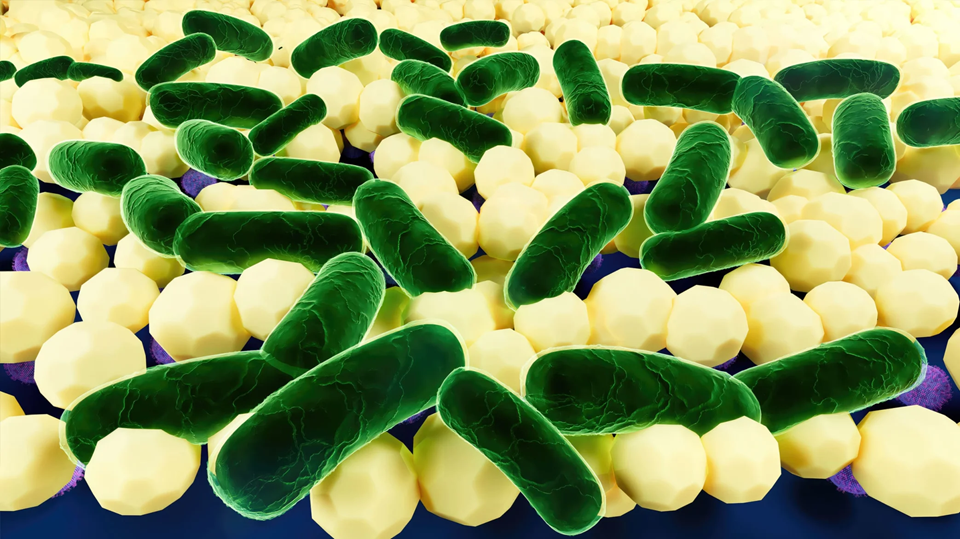Bacteria are becoming resistant to frontline antibiotics. The most recent figures show an alarming rise in antibiotic resistant (AMR) bacterial infections resulting in around 4.95 million deaths attributed to AMR bacterial infections (data from 2019).
Bacteriophages are naturally occurring bacteria specific viruses.
They are promising candidates for clinical development targeting AMR bacteria either as a standalone alternative or supplementary treatment to antibiotics. Multidisciplinary research is urgently needed to ensure development of a sustainable future pipeline of bacteriophage drug products targeting AMR pathogenic bacteria.
The aim of our work is to develop an integrated approach to phage therapeutic development from early stage therapeutic candidate selection underpinned with a robust bioprocessing manufacturing platform to accelerate phage therapy development.
By developing the underpinning process engineering knowledge and tools to facilitate production of clinical grade phages, we are helping international biotechnology companies to accelerate their preclinical development to address urgent unmet clinical need. Development is needed now in order to provide a lifeline for the growing number of people and conditions for whom antibiotics are no longer effective.
Professor Danish Malik
Professor Malik's inspiration comes for a desire to apply his knowledge and understanding of bioprocess engineering to real world problems that will have an impact in improving the health and well-being of people. Developing new bacteriophage therapeutics that target and kill antibiotic resistant bacteria could be transformational as the antibiotics we all rely on to fight bacterial infections become less effective which is now the case and increasingly becoming worse.
The research on bacteriophage production and formulation in his lab started after reading the O’Neill report (O’Neill, 2016) which outlined the stark challenge posed by the rising rates of antibiotic resistance in pathogenic bacteria and estimated that by 2050, 10 million people could die from AMR bacterial infections unless new therapeutics targeting these AMR bacteria were not developed (O’Neill, 2016). Professor Malik started thinking about how larger quantities of clinical-grade phages would need to be manufactured using industrial scale processes and how they can be administered to patients (Malik, 2021). He started looking at the challenges of scaling-up phage production from small 10-100 millilitre shake flasks typically used in the laboratory to propagate phage to developing 10,000 litre scale production systems (Mancuso et al., 2018). He began evaluating processes to purify the phages from the bacterial fermentation culture and analytical methods to assess the quality attributes of the phage drug product and link these to their potential clinical performance (Malik et al., 2023).
Professor Malik works closely with industrial phage biotechnology companies helping them accelerate their pre-clinical development of phage therapeutics. Working too with academic partners and charities targeting infectious diseases in humans and animals.
He has a desire to see the outcomes of their pre-clinical development work with international partners resulting in regulated phage biotherapeutics being routinely used to treat patients in the clinic and saving lives.
Our impact
- We are working with international partners including leading phage biotechnology companies to accelerate pre-clinical development of new phage therapeutics.
- Our research covers development of bacteriophages targeting a range of clinical indications including pulmonary, gastrointestinal and soft tissue/wound infections.
- We are recognised leaders in bacteriophage manufacturing and formulation ensuring future phage therapeutics are manufactured to industrial standards and are safe and efficacious.
- We are developing analytical methods to characterise the purity of these new therapeutics and linking these quality attributes to their therapeutic safety and performance.
Research in numbers
It is estimated that by 2050, 10 million deaths per annum will be attributed to AMR bacterial infections (O’Neill, 2016)
In 2019, bacterial AMR directly caused 1.27 million global deaths and contributed to 4.95 million deaths (Murray et al., 2022)


